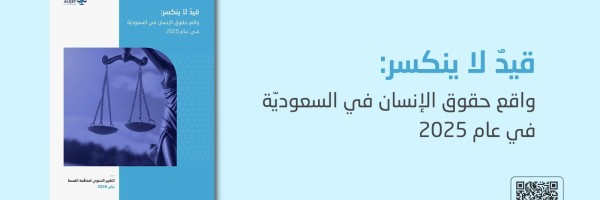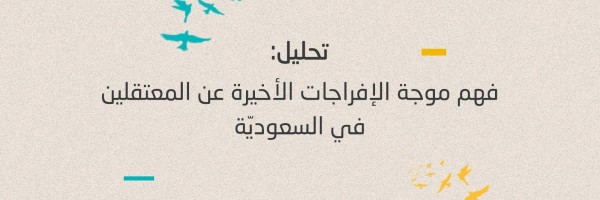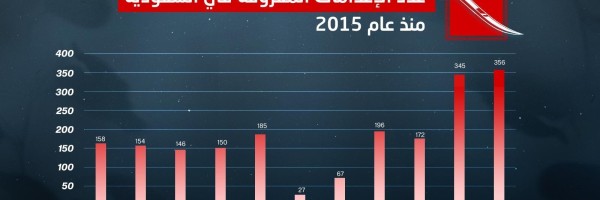Accounts on social media have published a decree from King Salman that would end Saudi judges’ discretion to apply the death penalty to minors. Many media organisations have reported this as a measure of reform. However, the royal decree makes one significant exception, and is also inconsistent with the kingdom’s Juveniles Law, leaving it devoid of any meaning unless a correction is issued.
The decree has not yet been published in the Saudi media or added to the Saudi Press Agency’s reference list of royal decrees, but according to the text published on social media, the sixth bullet point of the decree excludes sentencing in cases brought under the Counter-terrorism Law.
In a previous analysis of the Counter-terrorism Law when it was updated and reissued on 1 November 2017, ALQST highlighted its legal shortcomings, and particularly the way it criminalises peaceful actions. Articles 40 and 41 allow the death penalty to be applied “ta’ziran” – that is, at a judge’s discretion – even for actions that have not resulted in the killing of other people. Peaceful activists have been tried and sentenced under this legislation, which clearly shows how it is used by the authorities for broader purposes. Juveniles have also been sentenced to death under this Law, and the court has frequently relied on statements allegedly extracted under torture.
The fifth bullet point of the decree states that the Juveniles Law of 1 August 2018 must be applied whenever it is in the interest of the young person to do so. Article 15 of the Juveniles Law prohibits sentencing to death those under 15 years of age according to the Hijri calendar, and substitutes a prison term of up to 10 years. Article 16 of the same law, however, then excludes death sentences imposed, in accordance with Sharia law, “haddan” – as the penalty for a specific crime – and “qisasan” – as retribution.
Not only does Article 16 of the Juveniles Law allows minors to be executed haddan or qisasan, then, but the sixth point of the royal decree also allows minors to be sentenced to death ta’ziran – at a judge’s discretion – on terrorism charges. So there are three ways in which minors can still be executed, without either the royal decree or the Juveniles Law providing any real protection. And yet on 28 April 2020 the Saudi Human Rights Commission publicly praised the royal decree, saying that it covered terrorism cases and in no way allowed judges any discretion to pass death sentences on minors. Although the Commission is an official government body, it does not have legislative powers, and its statement contradicts the actual text of the royal decree.
ALQST calls on the Saudi authorities to clarify the text of the royal decree, to delete the sixth bullet point, and not to make exceptions for discretionary or any other cases. ALQST has previously called for total abolition of the death penalty, but the issue is particularly pressing in the case of minors and where judges are given discretion to decide whether to sentence someone to death. ALQST also calls for the Juveniles Law to be revised; for Article 15 to be amended to include minors aged 15 and above; and for Article 16, which permits executions haddan and qisasan even of those under 15, to be removed.
Background
Saudi Arabia has for years been among the countries carrying out the highest number of executions in the world. Yet despite Mohammed bin Salman’s pledge in 2018 to reduce use of the death penalty, 2019 witnessed the largest number of executions in recent Saudi history, with a total of 185 individuals executed.
On 23 April 2019 the Saudi authorities announced the execution of 37 individuals in various parts of the country. The majority were Shia men who had been convicted following unfair trials for various alleged crimes, including protest-related offences, espionage and terrorism. Among those executed on that day were Salman Al Quraish, Mujtaba al-Sweikat and Abdulkareem al-Hawaj, who were minors at the time of their alleged crimes. Other minors remaining on death row include Ali al-Nimr, Abdullah al-Zaher and Dawood al-Marhoon.




